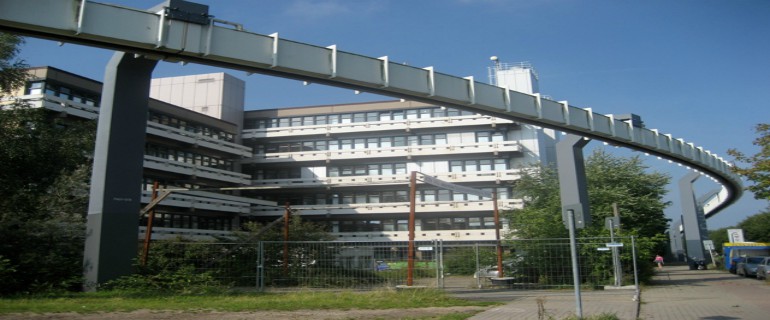
Why Study in Dortmund University
Dortmund University of Applied Sciences and Arts (German: Fachhochschule Dortmund) is a Fachhochschule in Dortmund, North Rhine-Westphalia, Germany with 12,300 students, and 669 staff, 232 of which are professors. It is situated in the Ruhr area, the fourth largest urban area in Europe. The Fachhochschule was created by a merger of several institutions of higher learning in 1971. Owing to its history as separate institutions, it consists of three campuses in different parts of Dortmund. The departments of mechanical and electrical engineering are located at Sonnenstraße near the city center. The department of design has its own campus at Max-Ophüls-Platz while the departments of social work, economics, computer science and architecture are housed in several buildings next to the Technical University of Dortmund campus in the suburb of Eichlinghofen. The university is known for its business faculty. Additional offices in the city centre are used for administrative purposes.
The Technische Universität Dortmund has gained a special profile since its foundation 49 years ago, with 16 faculties in natural and engineering sciences, social sciences and cultural studies. The university has about 34,600 students and 6,200 employees, including about 300 professors. The curriculum includes some 80 degree programs, including both classical and innovative subjects, some unique offerings and a broad range of teacher education for all types of schools. The various scientific disciplines are united by a university spirit in which interdisciplinarity and interaction, communication and cooperation are lived. As a result, technological innovation, methodological and scientific progress are virtually programmed at the TU Dortmund.
The University City of Dortmund offers its students excellent study conditions in a variety of academic institutions and research institutes. With them innovative companies from future industries are interlinked. A compilation of all scientific institutions, networks, foundations and competence centers in Dortmund with addresses and contacts can be found in the Science Portal of the City of Dortmund . There you will also find help with the many questions surrounding your studies - which subject could be suitable for me, where you can live in Dortmund, what funding options are available, and much more.
Studying in Germany - No German? No Problem
Let’s face it -- not everyone goes to study abroad to perfect their language skills. Going for the cultural experience and life in a new place is just as much a factor. Using a study abroad program allows you to tailor a program to fit what you want and make sure that learning in English is a priority.
Finding a program that offers the majority of its courses in English is a great first step. Check out these study abroad opportunities in Germany to find one that meets your language-learning needs. If you’re uncertain, you can ask a question right on the study abroad program page and alumni from that program will answer you.
You can also visit your school’s study abroad office to find out about partner universities in Germany. Often times, North American schools will partner with foreign institutions that specifically offer programming in their native language. It’s not a bad idea either to ask your school if they offer German language courses. Even a semester’s worth of language classes or short summer intensive will go a long way to prepare you for life in Germany. Chances are you might be able to use some of the credits to pad out your degree as well!
Furthermore, many German universities provide different options for varying levels of German-language abilities, including English instruction for absolute beginners.
You can even choose whether to take courses alongside local German students or other international students. With a little extra research, you'll be able to find the perfect program that pairs survival German classes and other subject courses taught with English instruction.
Remember that there is no best option when it comes to choosing a study abroad experience; just choose the best one for you.
For English speakers who aren’t comfortable speaking German except for the occasional “pass the schnitzel” or “Nein!” it’s no problem (or “Kein Problem,” as the Germans would say) for those wanting to study here.
Not only is Germany a hugely cosmopolitan country, with many English services available in its larger cities, but a 2012 survey by the European Commission revealed that 50% of Germans feel comfortable speaking English. In my experience, that number tends to be even higher amongst German youth and students -- the exact people you’ll be interacting with the most during your time studying abroad.
For those students who aren't confident in their German language skills, there are plenty of programs taught in English all over the country. You'll just need to be a little pickier when you're selecting which program in Germany to study abroad with.
Study in germany, universities in germany, top universities in germany, best universities in germany, masters in germany, top business schools in germany, top mba colleges in germany, best mba colleges in germany, mba in germany fees, universities in germany for mba, top ten universities in germany...